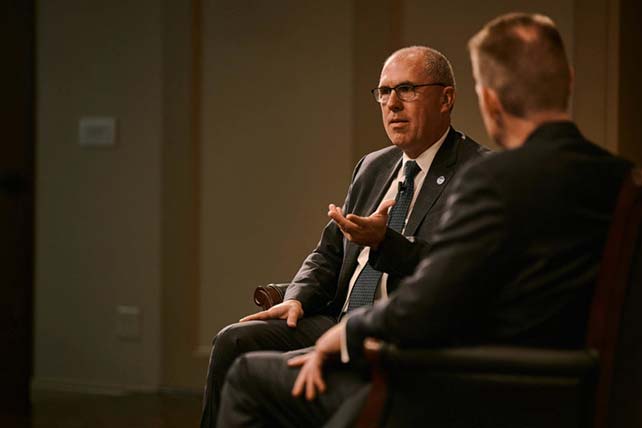But, Mohler said, Adrian Rogers was very persuasive in the committee. Mohler recalled, “… [Rogers] just came out and said, ‘Look, the word pastor is the one word every Southern Baptist understands,’ until you get to Saddleback.”
Mohler was referencing recent events at Saddleback Church in Southern California, which is by most accounts the largest Southern Baptist church. Last year, Saddleback ordained three women and gave them the title of “pastor.” Then, earlier this year, Saddleback founding pastor Rick Warren announced that upon his retirement, he would be replaced by Andy and Stacie Wood – a couple, rather than just one man. Stacie Wood has begun preaching during Saddleback’s Sunday services.
Pierre pointed to the use of the word pastor in church positions that would not be equated with those that have the broad responsibilities of elders or overseers.
“I think it’s because sometimes in our pragmatic way of seeing things, we can sort of use language in two ways, and that’s an unwise way of doing it, right?
“So, we can take a biblical term and then we can use it as an institutional title, and we think we’re doing something other than that,” he said. “So, I can call someone a pastor in terms of a demarcation of a position without calling them a pastor in terms of what the Bible’s talking about. But that’s all kind of confusing. It’s not good shepherding of the people. It’s not a clear message, and it doesn’t end up serving folks well.”
RELATED: Al Mohler Clarifies ‘Pastor’ Title in Baptist Faith and Message
Mohler added that that the use of the word and title can lead to confusion in the local church and across an entire denomination.
Pointing to the recent appointment of an openly married gay bishop in the United Methodist Church as an example, he said, “The New Testament definition of the church and the ministry just isn’t compatible with the modern ideal of egalitarian opportunism.”
This article originally appeared at Baptist Press.

